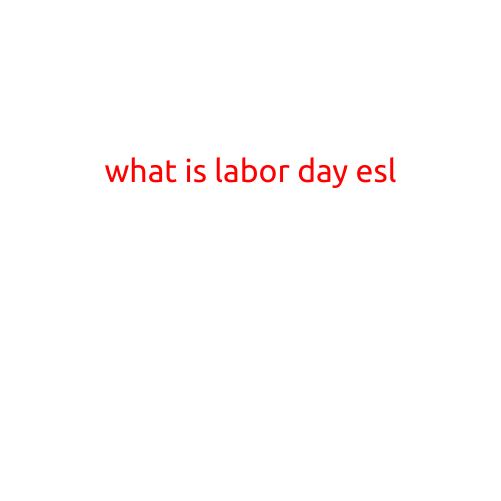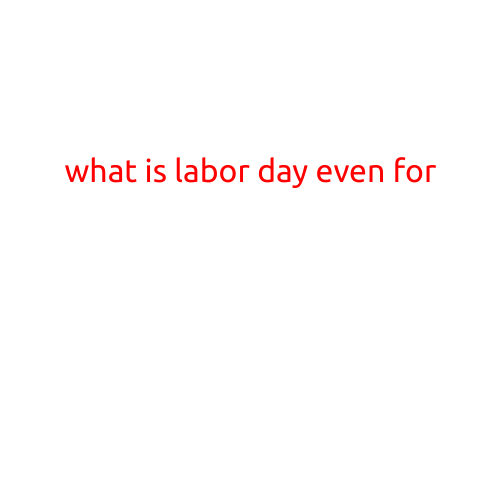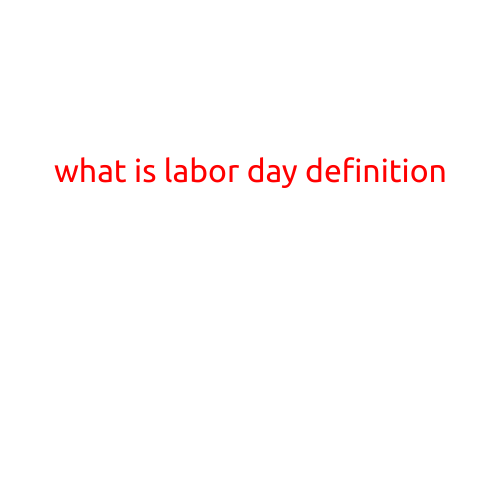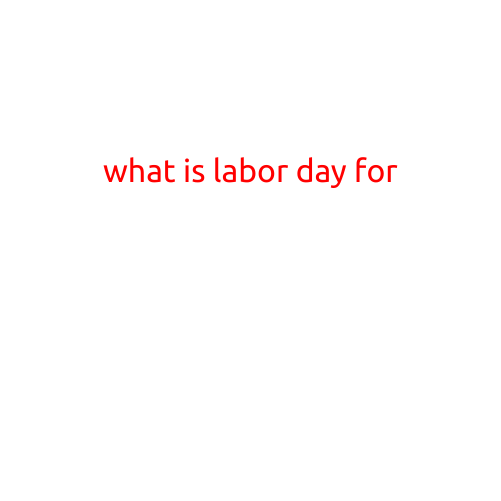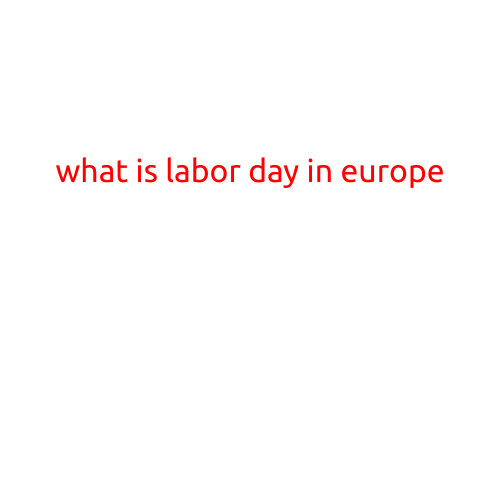
What is Labor Day in Europe?
Labor Day, also known as May Day, is a public holiday celebrated on May 1st every year across Europe. The day is dedicated to the labor movement and the struggles of workers, and is a time to acknowledge the achievements of the labor force.
The origins of Labor Day in Europe date back to the late 19th century, when workers’ rights and labor unions were fighting to improve working conditions, reduce working hours, and increase wages. On May 1st, 1886, thousands of workers in Chicago, USA, went on strike and marched through the streets, demanding better working conditions and an eight-hour workday. The event became known as the Haymarket Riot, and although it was a violent event, it marked a turning point in the labor movement.
In Europe, Labor Day was first celebrated in 1890, when the Second International, a global socialist organization, declared May 1st as International Workers’ Day. The first Labor Day celebrations took place in Germany, France, and other European countries, with demonstrations, rallies, and festivities organized by labor unions and socialist parties.
Today, Labor Day in Europe is a significant public holiday, with many countries observing the day off from work. While the specifics of the celebrations may vary from country to country, the overall spirit of the day remains the same: to honor the labor movement and the struggles of workers.
Traditions and Customs
Labor Day in Europe is marked by a range of traditions and customs. In some countries, the day is celebrated with traditional labor-themed festivities, such as picnics, parades, and street parties. In others, people may choose to spend time with friends and family, enjoy outdoor activities, or participate in cultural events.
In some European countries, Labor Day is also associated with specific customs and traditions. For example:
- In Spain, Labor Day is known as “Día del Trabajo” and is celebrated with festivals, music, and dancing in the streets.
- In Italy, Labor Day is known as “Festa del Lavoro” and is marked by concerts, parades, and festivals.
- In Greece, Labor Day is known as “Εργατική Ημέρα” (Ergatiki Himera) and is celebrated with demonstrations, rallies, and cultural events.
Europeans’ View of Labor Day
For many Europeans, Labor Day is an important day to reflect on the achievements of the labor movement and the struggles of workers. It is a day to recognize the importance of fair labor practices, decent working conditions, and social justice.
In a survey conducted by the European Commission, 72% of Europeans reported that they believed Labor Day was an important holiday, and 65% said that they celebrated the day by spending time with family and friends or participating in cultural events.
Conclusion
Labor Day in Europe is a celebration of the labor movement and the struggles of workers. While the day may have different meanings and traditions in different countries, it remains an important public holiday that recognizes the importance of fair labor practices and social justice.
As Europeans come together to celebrate Labor Day, they do so in recognition of the achievements of the labor movement and the struggles of workers. Whether through traditional festivities, cultural events, or simply spending time with loved ones, Labor Day is a day to honor the labor force and look forward to a brighter future for all.
